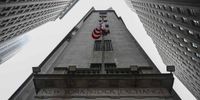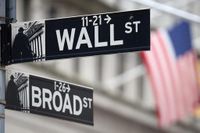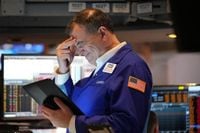US stocks plunged sharply on Thursday, April 3, 2025, following President Donald Trump’s unexpected announcement of steep global tariffs, termed "Liberation Day" tariffs. The market reacted with alarm, with the Dow Jones Industrial Average tumbling as much as 1,500 points, or 3.6%, shortly after the opening bell. The S&P 500 and the tech-heavy Nasdaq Composite also suffered significant declines, falling 4.4% and 5.6%, respectively. This marked one of the worst days for the stock market since September 2022.
In a move that shocked investors, Trump introduced a minimum 10% tariff on all US trading partners, with additional duties for countries deemed "bad actors" in trade practices. Notably, China faced a staggering 34% tariff, while Vietnam and Japan were hit with 46% and 26% tariffs, respectively. The implications of these tariffs are vast, affecting approximately 185 countries and setting the effective US tariff rate at its highest level in over a century.
The sell-off was widespread, with major companies like Apple and Nvidia leading the declines. Apple shares, which are heavily reliant on components sourced from China, fell over 8%, erasing approximately $255 billion in market value. Concerns about supply chain disruptions were exacerbated by the tariffs, particularly as Apple produces most of its iPhones in China. Analyst Dan Ives from Wedbush noted, "Apple produces basically all their iPhones in China, and the question will be around exceptions and exemptions on this tariff policy if those companies are building more operations, factories, and plants in the US like Apple announced in February."
Similarly, Nvidia's stock dropped over 5% due to fears surrounding its supply chain, which is significantly tied to both China and Taiwan. The broader technology sector was not spared, with heavyweights such as Amazon and Tesla also experiencing declines. Tesla’s stock fell 5.8%, impacted by lower EV sales in Germany and disappointing delivery numbers.
The ramifications of Trump’s tariff announcement were felt globally. The pan-European benchmark Stoxx 600 sank more than 2%, while Japan's Nikkei 225 slumped 2.7%, reaching its lowest level since August. In the US, shares in major retailers like Walmart, Target, and Nike also fell sharply, with Nike shares dropping over 8% as the tariffs threatened their Asian sourcing hubs.
As the market reacted, the yield on the 2-year Treasury note dropped to 3.74%, and the 10-year yield fell to 4.02%, indicating a flight to safer assets amid rising fears of an economic slowdown or recession. David Donabedian, chief investment officer of CIBC Private Wealth, remarked, "The huge tariffs imposed will make negotiations with other countries more complex and lengthy. Some countries will choose to retaliate rather than negotiate, leading US equity markets to price in significant recession risk."
Commodities also felt the pressure, with oil prices plummeting more than 7% following OPEC+’s decision to increase supply more than anticipated in May. West Texas Intermediate crude fell to below $67 per barrel, while Brent crude dropped to $70. This decline was compounded by the fears of reduced demand due to the trade tensions.
Gold futures, which typically perform well during market turmoil, retreated by 1.7% as investors sought safer havens. Copper prices dropped 2.6%, reflecting concerns about an economic slowdown that could reduce demand for industrial metals.
In the labor market, initial jobless claims fell to 219,000 for the week ending March 29, down from 225,000 the previous week, but continuing claims rose to 1.9 million, marking the highest level since November 2021. Job cuts also surged, with 275,240 announced in March, up from 172,017 in February, largely attributed to the Department of Government Efficiency's plans to eliminate positions.
As the dust settled on the market's response to Trump's tariffs, analysts warned of the potential for a prolonged downturn. Savita Subramanian from BofA Global Research stated, "There is no tariff playbook. The hit to S&P 500 earnings could be anywhere between 5% and 35%, depending on whether trading partners respond with equal force." This uncertainty looms large over the market as investors brace for the potential fallout.
Overall, the day underscored the fragility of global markets in the face of sudden policy changes and the interconnectedness of international trade. With fears of a trade war escalating, the economic landscape appears increasingly precarious as stakeholders await further developments.







